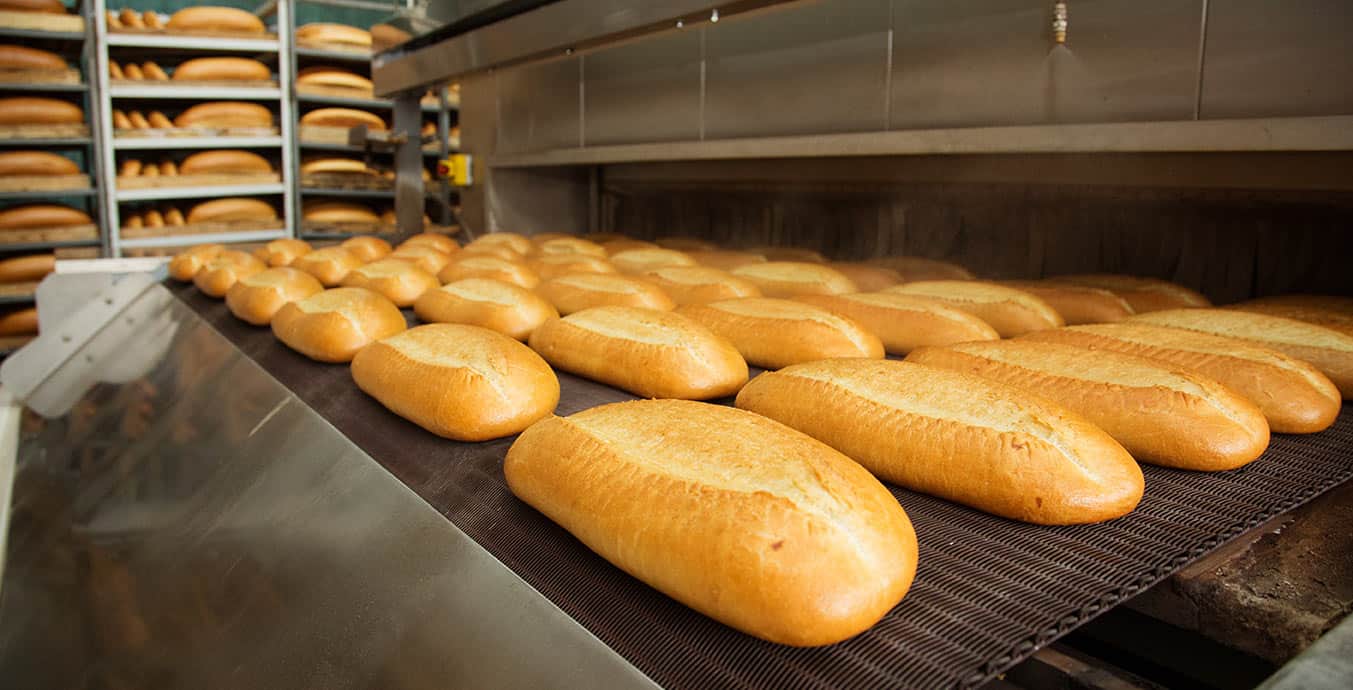
To remain competitive, industrial operators in the food and drink sector must often keep the air compressors they use running continuously. As a result, compressor equipment must deliver optimum performance and dependability, along with minimum downtime. For this reason, the correct lubricant must be used. In an environment where consumable products are manufactured, packaged or stored, this requires a food grade solution.
Compressed air is an important energy source, employed throughout across the food and beverage sector in all aspects of activity. This includes not only the processing and transportation of raw materials, but also the final stages like bottling or packaging and every step in between. For these processes, contaminant-free and clean compressed air is crucial.
Government regulations, growing awareness of food grade lubricants designed for consumer safety and increasing consciousness regarding Halal and Kosher registrations has triggered an increased demand for food grade lubricants of the highest quality. However, with an abundance of options now available, picking the right product is not always simple. An ideal solution must consider consumer safety, enhance performance and helping mitigate maintenance costs and equipment downtime.
Conventional mineral oil cannot meet the latest demands placed on food grade lubricants for air compressor lubricants. As a result, semi-synthetic and full synthetic lubricants are used. They offer outstanding thermal oxidation stability, which enables long service intervals, and can cope with oil degradation inflicted by increased fluid temperatures. Below are three appropriate solutions for food grade lubricants and the benefits they offer.
Semi-synthetic food grade lubricants
These lubricants offer affordability and sound performance. Derived from synergistic blends of base oils which are hydrotreated and hydrocracked, these oils deliver a refined and high-quality product.
Semi-synthetics are enhanced using premium synthetic esters and dependable additive technology, helping to improve properties like, wear resistance at high stress levels and temperatures, viscosity, and increased detergency for cleaner machinery. These lubricants can last up to twice as long as standard mineral oils (up to 4000 hours compared to 2000).
Polyalphaolefin (PAO) based Synthetic food grade lubricants
PAO Synthetic lubricants offer impressive performance levels and deliver several advantages over standard mineral oil lubricants and are often used in equipment such as rotary screw compressors.
These lubricants are most suited to use in compressors as they can provide high temperature oxidative and thermal stability, low volatility and have a high flash point. They are also hydrolytically stable. However, PAO lubricants offer superior performance times compared to semi-synthetic alternatives (8000 hours compared to 4000 hours).
PAO/Ester-based Synthetic food grade lubricants
Enterprises are increasingly required to balance sustainability and efficiency. Equipment operators require extended machinery service intervals and as a result need compressor lubricants that also have a longer lifespan. Longer oil life attributes result in multiple business benefits including far fewer production stops for changeovers, a greater production output, lower oil consumption and waste reduction.
PAO/ester-based lubricant provide the best properties of a PAO base, improved with a specially selected ester to enhance additive solubility and detergency attributes of the entire formulation to an advanced different level. The end results of using such a solution include very low deposit formation and far cleaner machinery which increases not only the working lubricant but also the lifespan of the compressor. Offering impressive longevity and performance, the oils are designed to last through an entire maintenance cycle working under intense operating conditions.
Extreme environments and lubricants
Environments which are humid, or acid demand a specific lubricant that will not form sludge. hydrolyze at higher temperatures, or damage paints and seals. To answer these challenges, expert lubricant makers have developed specially formulated lubricants for compressors and vacuum pumps, which remain inert to the aggressive reactive gases found in such challenging operating environments.
These expertly engineered products will not only withstand assaults from aggressive gasses and mitigate rapid breakdown, but they are also capable of holding the unwanted deposits in solution where they can cause no harm to equipment or reduce the oil’s efficiency. The oxidative and thermal stability of their base fluid, combined with dedicated oxidation inhibitors, can extend the lubricant’s active service life at the most elevated operating temperatures.
Compared to other lubricants, inert products degrade at a far slower rate under harsh conditions, which dramatically increases the service life of the pump or compressor. These lubricants are specifically engineered to provide inertness, as well as long-term lubrication in specific applications, and systems where contact with such reactive chemistries is unavoidable. They can also mitigate the formation of unwanted deposits and lacquering formation due to their impressive detergency properties.
Selecting food grade compressor oils and affordability
Finally, synthetic food grade compressor oils may appear to be a more expensive solution than others on the market in the short-term. However, the enhanced performance, longevity and protection they offer mean that companies will make significant savings for their operations over time.








































